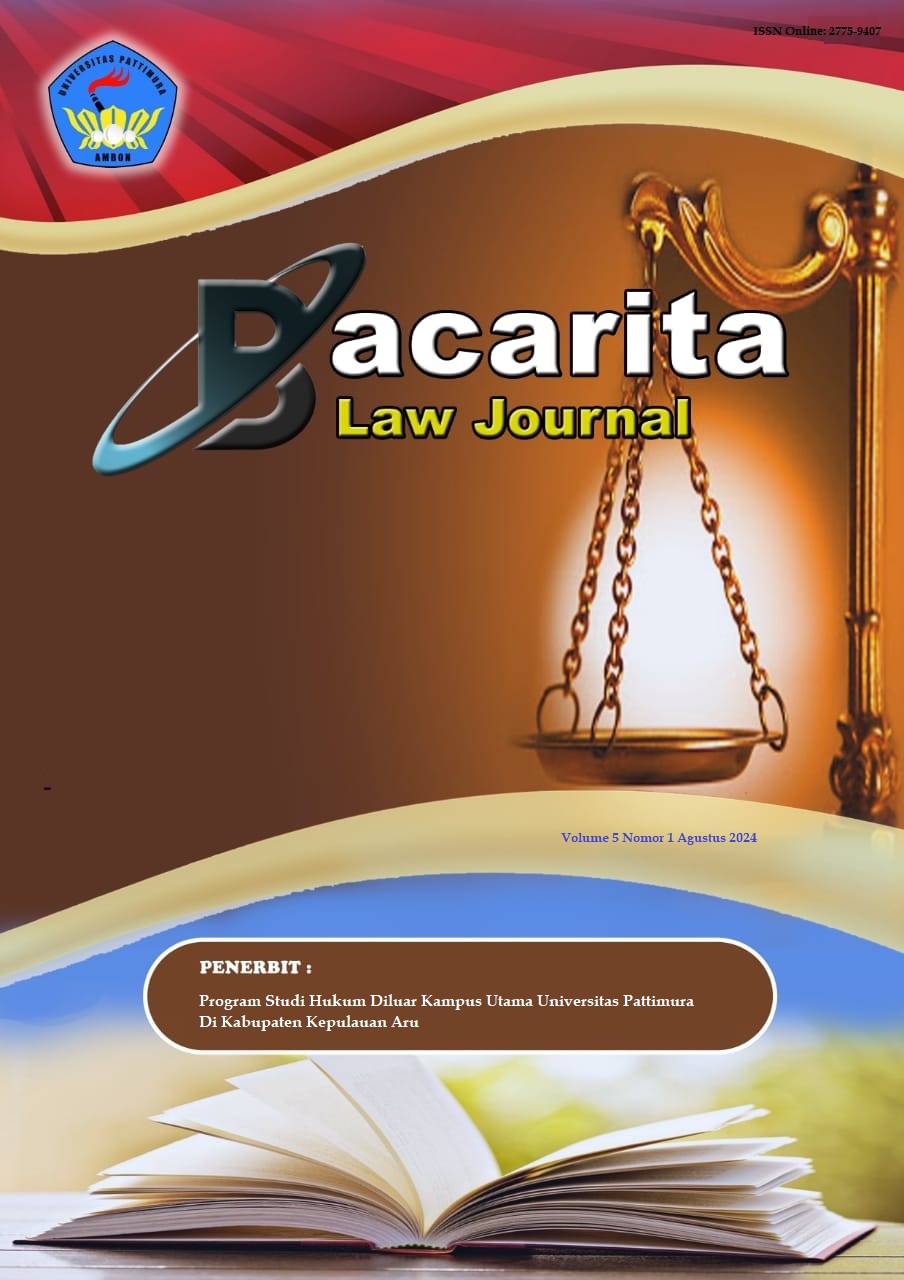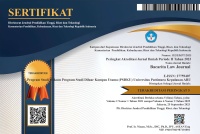Mechanism Mekanisme dan Tahapan Penanganan Perkara Perselisihan Hasil Pemilu Presiden dan Wakil Presiden Tahun 2024
Abstract
The Presidential and Vice Presidential Elections in Indonesia is a crucial moment in the nation's democratic life. However, in the process, disputes and dissatisfaction with the election results announced by the General Election Commission (KPU) often arise. If not handled properly, this dissatisfaction can threaten political stability and public trust in the democratic system. Therefore, an effective and transparent mechanism for resolving election disputes is crucial to maintain the integrity of the democratic process in Indonesia. The research to conduct an in-depth analysis of the mechanisms and stages of resolving disputes over the results of the Presidential and Vice Presidential elections in Indonesia in 2024, and to assess the impact of the mechanism for resolving election disputes on political electability and public trust. The research method used is normative legal research. Normative legal research studies how legal norms function. The data collection method used is literature review. This study utilizes secondary data obtained from various literature and regulations related to the issues under investigation. The research findings indicate that the mechanisms and stages of resolving election disputes in Indonesia are detailed in the legislation. The level of public trust in the Constitutional Court as the institution for resolving disputes is relatively high, but concerns exist regarding the independence and transparency of the process. There is a need for stricter oversight of the dispute resolution process to ensure that each step is carried out in accordance with applicable regulations. Thus, it is hoped that the mechanism for resolving election disputes in Indonesia can operate more effectively and be trusted by all parties involved.
Downloads
References
Jurnal
Prasetyo, H., & Herlambang, E. (2018). Sengketa Pemilihan Umum dan Urgensi Penyelesaian Melalui Mediasi. Jurnal Penelitian dan Pengembangan Hukum.
Pratama, H. (2022). "Transparansi dan Akuntabilitas dalam Penyelesaian Sengketa Pemilu di Indonesia." Jurnal Politik dan Pemerintahan, 13(2), 99-120.
Wijaya, M., & Arifin, A. (2020). "Efektivitas Penyelesaian Sengketa Pemilu oleh Mahkamah Konstitusi." Jurnal Hukum & Pembangunan, 50(1), 45-64.
Buku
Abdulkadir Muhammad, Hukum dan Penelitian Hukum, cetakan 1, Citra Aditya Bakti, Bandung, 2004.
Asshiddiqie, J. (2016). "Konstitusi dan Konstitusionalisme Indonesia." Jakarta: Sinar Grafika.
Harijanti, S. D. (2019). "Pemilu dan Demokrasi di Indonesia." Yogyakarta: Gadjah Mada University Press.
Levitsky, S., & Ziblatt, D. (2018). How Democracies Die. Crown.
Lembaga Studi dan Advokasi Masyarakat. (2019). Membangun Demokrasi yang Berkualitas: Reformasi Sistem Penanganan Sengketa Pemilu di Indonesia. Lembaga Studi dan Advokasi Masyarakat.
Lembaga Survei Indonesia (LSI). (2024). "Laporan Survei Kepercayaan Publik terhadap Sistem Pemilu 2024." Jakarta: LSI.
Setiawan, D., & Tandililing, E. (2016). Pemilihan Umum dan Sengketa Pemilihan Umum. Pustaka Yustisia.
Tim ICCE UGM. (2017). "Menyongsong Pemilu Serentak 2019: Proses Pembelajaran dan Harapan." Yogyakarta: Gadjah Mada University Press.
Copyright (c) 2024 Edy Sony

This work is licensed under a Creative Commons Attribution-NonCommercial 4.0 International License.
Authors who publish their manuscripts in this Journal agree to the following conditions:
- The copyright in each article belongs to the author, as well as the right to patent.
- Authors are able to enter into separate, additional contractual arrangements for the non-exclusive distribution of the journal's published version of the work (e.g., post it to an institutional repository or publish it in a book), with an acknowledgment of its initial publication in this journal.
- Authors are permitted and encouraged to post their work online (e.g., in institutional repositories or on their website) prior to and during the submission process, as it can lead to productive exchanges, as well as earlier and greater citation of published work.
- Authors have the right to self-archiving of the article (Author Self-Archiving Policy)















